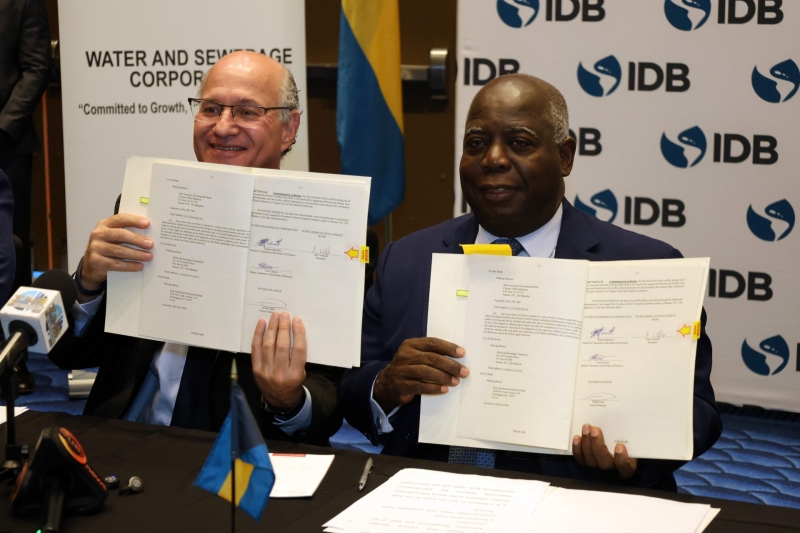NASSAU, Bahamas — The Bahamian government signed a landmark $100 million agreement with the Inter-American Development Bank (IDB) on Monday to overhaul the nation’s aging water and sanitation infrastructure, a critical step toward addressing chronic service gaps and climate resilience in the archipelago.
The deal, formalized during the IDB’s XIII Annual Consultation with Caribbean Governors at Nassau’s Baha Mar Convention Centre, includes an initial $50 million loan to upgrade potable water access, reduce system losses, and expand sewerage services in New Providence and the Family Islands. The funds will bolster the state-run Water and Sewerage Corporation (WSC), which has long struggled with inefficiencies and underinvestment in a country where saltwater intrusion and hurricane damage increasingly threaten freshwater supplies.
A Lifeline for Vulnerable Communities
IDB President Ilan Goldfajn hailed the partnership as a “transformative investment” during the signing ceremony, emphasizing that the project would directly benefit 235,000 residents—nearly 60% of the population—by improving access to reliable drinking water and sanitation. “This is not just about infrastructure,” he said. “It’s about dignity, health, and building resilience for the next generation.”
The first tranche of funding targets 65,000 households, with 48,103 in densely populated New Providence and 16,897 in the scattered Family Islands. Nearly 10,500 homes in New Providence will gain upgraded sewerage systems, while over 2,000 households across the islands will see expanded water supply coverage. The program also aims to slash water loss through smart metering and pipeline repairs, alongside modernizing the WSC’s governance to ensure long-term sustainability.
Climate Pressures Drive Urgency
The Bahamas, a low-lying nation of 700 islands, faces acute water security challenges. Rising sea levels have contaminated freshwater lenses, while aging pipes and frequent hurricanes—like 2019’s Category 5 Dorian—have left systems brittle. Prime Minister Philip Davis underscored the timing of the loan, noting that “climate change isn’t a distant threat; it’s lapping at our doors.”
The IDB’s Conditional Credit Line for Investment Projects (CCLIP), approved in November 2024, ties future disbursements to measurable outcomes, including reduced water leakage and improved financial management at the WSC. “Accountability is baked into this agreement,” said IDB Bahamas representative Daniela Carrera-Marquis.
Skepticism and Stakeholder Hopes
While officials celebrated the deal, some residents expressed cautious optimism. “We’ve heard promises before,” said Andrela Rolle, a nurse from Grand Bahama who relies on bottled water due to inconsistent service. “If this brings clean water to my tap, I’ll believe it.”
Critics also questioned whether the loan terms might strain public finances. The Bahamas’ debt-to-GDP ratio, hovering near 90%, has raised concerns about borrowing. But Finance Minister Ryan Pinder defended the move, stating, “This isn’t debt for waste—it’s debt for development.”
Regional Implications
The agreement signals the IDB’s deepening focus on climate adaptation in the Caribbean, where small island states contribute minimally to global emissions yet bear disproportionate impacts. The bank has financed similar water projects in Jamaica and Belize, though none at this scale.
With the first projects set to break ground in late 2025, all eyes are on the WSC’s ability to deliver. “The road ahead is long,” said Goldfajn, “but today, hope flows a little brighter in The Bahamas.”



